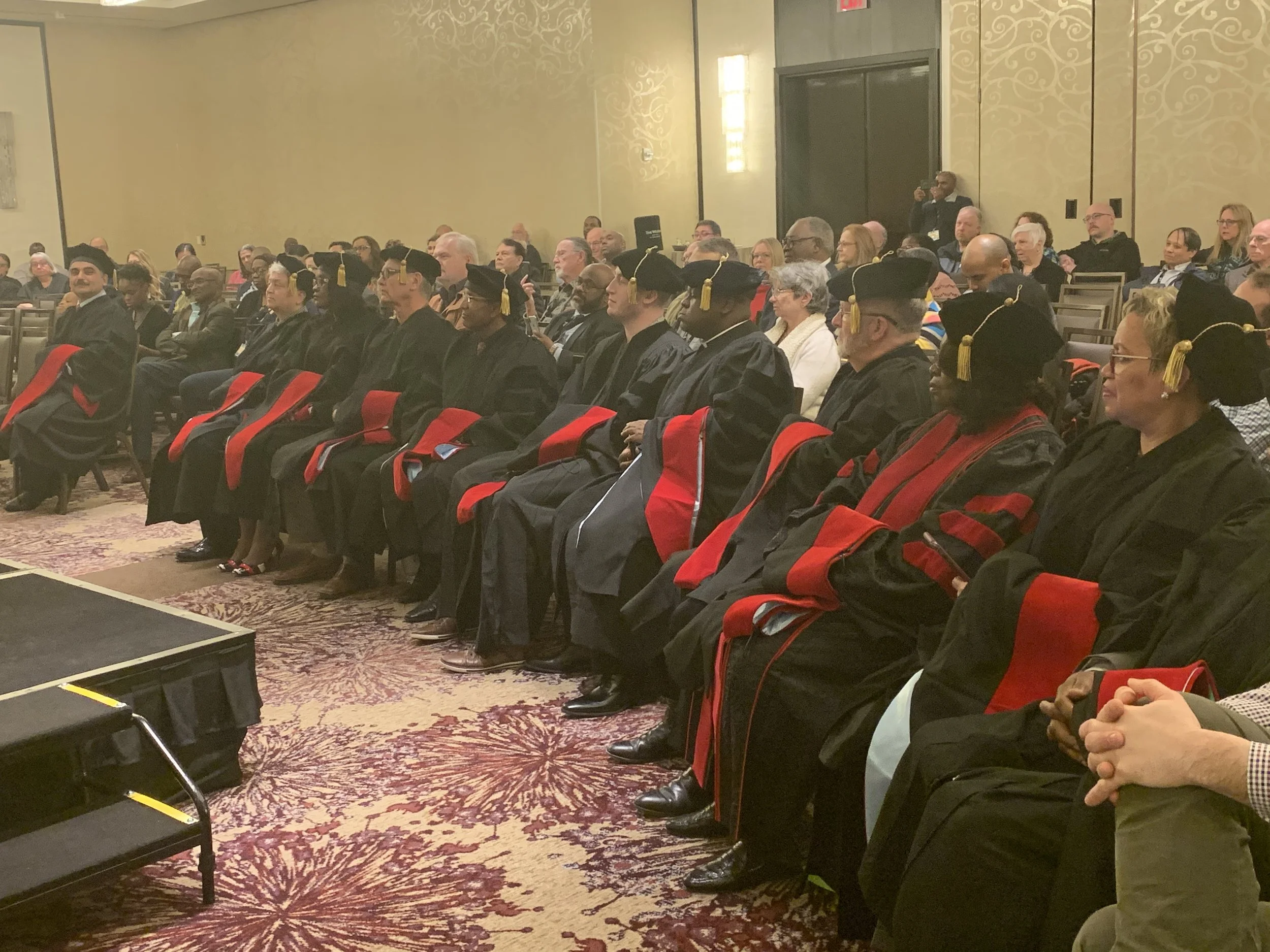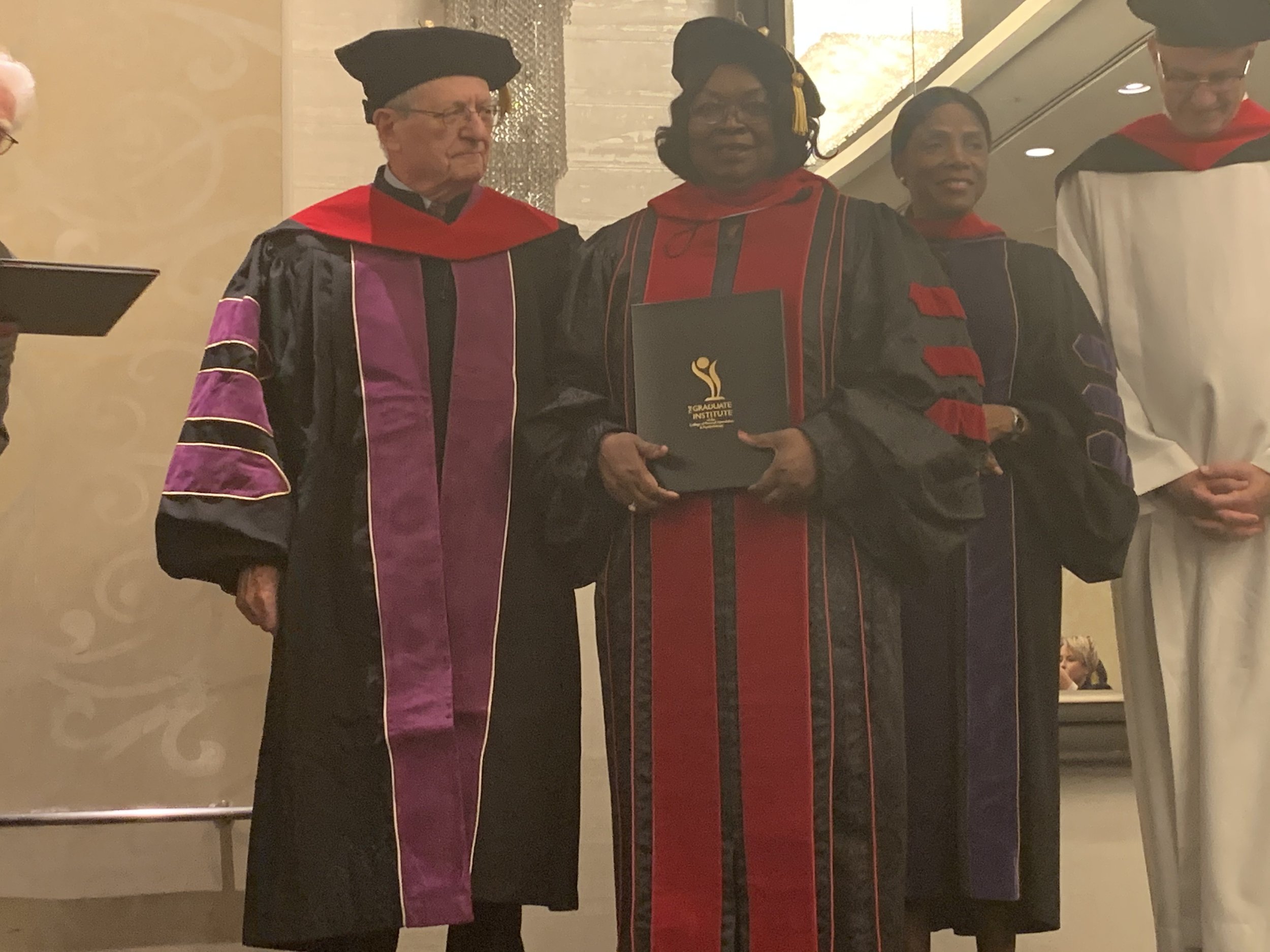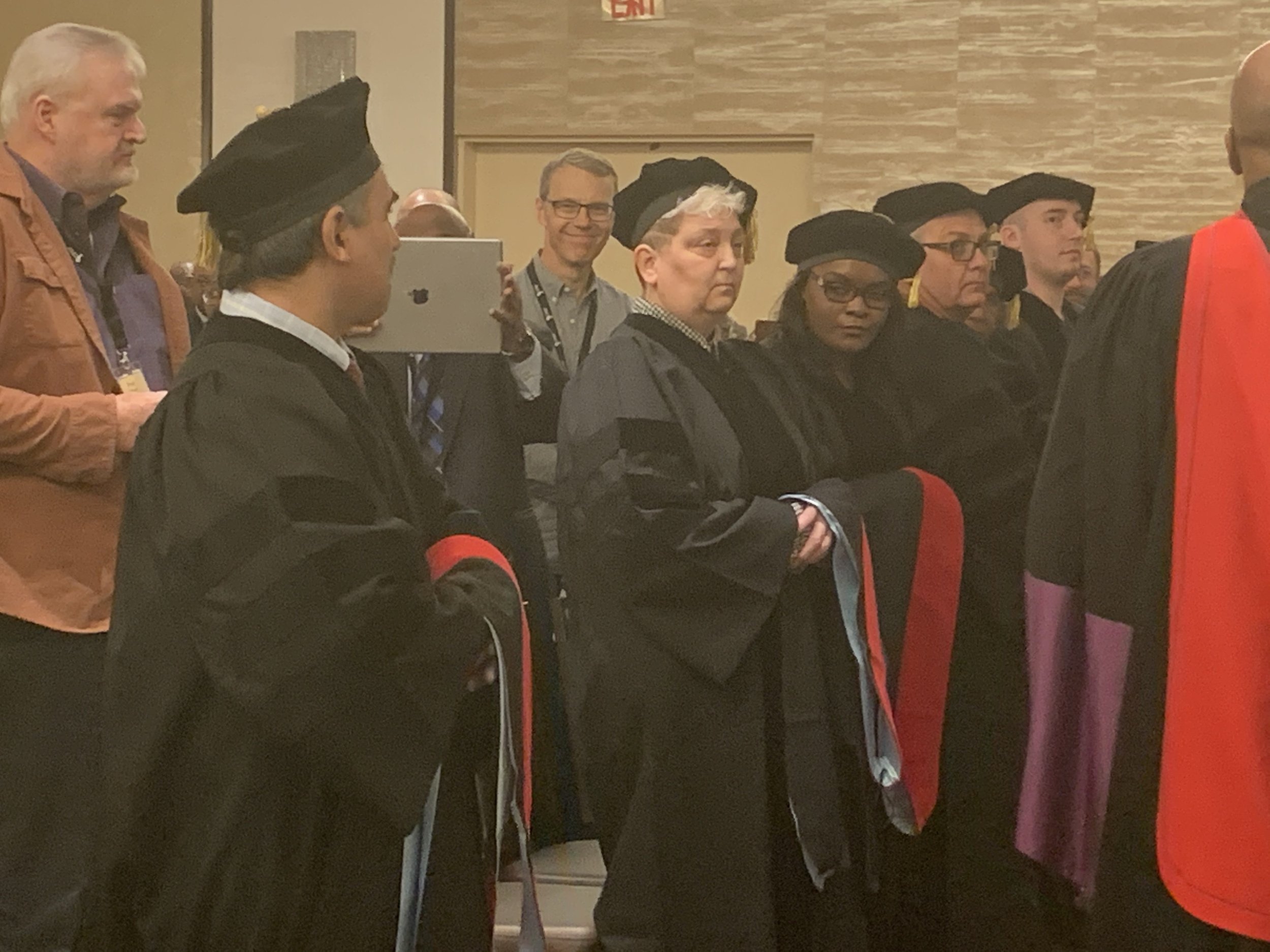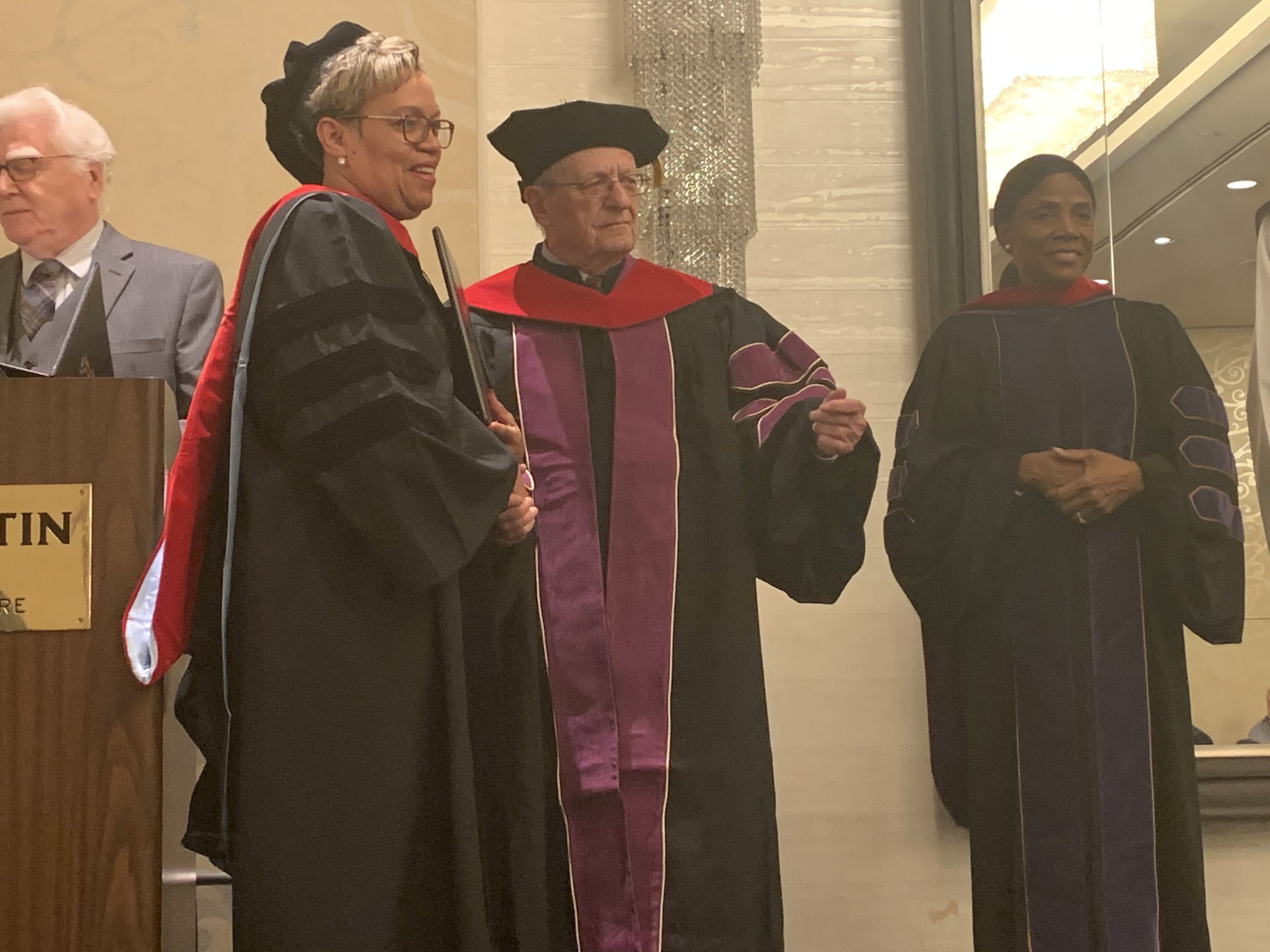About
The Clinical Pastoral Movement: The First Hundred Years
The clinical pastoral movement acknowledges several sources and multiple origins that, together, are said to constitute the movement. One stream emphasized the use of pre-Freudian psychology and scriptural counsel in the setting of a congregation, and another provided seminarians with first-hand experience of the actual lives of parishioners in their work and social contexts. Yet a third explored the social/environmental factors affecting mental hygiene or (as we would now say) community mental health.
A fourth stream took inspiration from the efforts of a former mental patient to comprehend his experience in the light of his faith and dynamic psychology, thus breaking down the dividing wall between religion and medicine.
The first three coalesced as a reform movement within theological education and continue to frame their work as experiential learning of the knowledge, skills, and attitudes that characterize professional ministry.
The fourth began, in essence, with a research question and has reemerged in the College of Pastoral Supervision and Psychotherapy (CPSP) and the Graduate Institute.
The essential premise of clinical learning has not changed since the time of Anton T. Boisen almost a century ago – that the client and clinician engage together in cooperative inquiry into the meaning of the client’s experience. Clinical pastoral training introduces theories that inform the clinician’s practice, and provides the foundation for more advanced learning.
The Second Century
Advanced learning in the theory underlying clinical chaplaincy practice and pastoral supervision (from a psychodynamic perspective) has not been readily available or structured in accessible ways until now. The Graduate Institute’s Doctor of Ministry in Pastoral Supervision reflects the vision of CPSP leadership in addressing this need both credibly and affordably.
Members of CPSP who are certified or are in the process of certification have been formed in The Highest Standard in Clinical Chaplaincy and Clinical Pastoral Training. This experience is the basic requirement for admission to the program and the prerequisite for studies that build on clinical training.
The program design provides for an in-depth encounter with the theoretical and practical dimensions of clinical pastoral practice, including supervision, and thus is especially suited to those already certified as Diplomates in Pastoral Supervision or in the process as supervisors-in-training.
The Doctor of Ministry degree equates to one year of full-time study or 160 hours of class time. The four-unit residency or internship in clinical pastoral training (required before one may be admitted) is weighted at nine credits; academics account for the remaining 27 credits.
Ordinarily, the program is introduced with a one-week residency, followed by online instruction in a synchronous format. The program design for the 2021 program is substantially revised to account for travel restrictions, etc., and will be presented entirely online.
The final requirement following the integration seminar is the submission of a capstone project (approximately 30 pages in length).
Successful completion of the program is marked by the conferring of the Doctor of Ministry degree.
“We have not found adequate and affordable doctoral-level educational opportunities available that both recognize the kind of expertise acquired by a pastoral clinician and which build conceptually on that expertise… this degree will be based on knowledge of the theoretical and practical dimensions of clinical pastoral practice.”
— Raymond J. Lawrence, Dean
FAQs
What is required for admission to the program?
Admission requirements include a master’s degree appropriate to clinical pastoral work and membership in and certification by CPSP as a clinical chaplain or pastoral psychotherapist. An application fee ($250) must be submitted with the application. This fee is nonrefundable and nontransferable.
What is the cost of the program?
Tuition for the Fall 2021 cohort is to be decided. An experiential group relations event developed in cooperation with Grex, the West Coast affiliate of the A.K. Rice Institute for the Study of Social Systems, is optional but highly recommended. The cost for that event is TBD. Most readings required for the program are available in electronic form; the total cost of books will be $500 or less. Due to the public health emergency, there will be no instruction in residence for the Winter 2021 cohort, and thus no expense for travel, lodging, or meals. Students are responsible for the costs of internet/conferencing services at their locations.
What are the online classes like?
Participation in The Graduate Institute’s program requires a significant commitment of time, on a scheduled basis, for synchronous learning, meaning everyone is online simultaneously. (Scheduling of class meetings considers, as much as possible, the time differences between students’ locations.) You will engage with key readings appropriate to the discipline, with faculty, and with your fellow students. Dialogue is the order of the day. You will need high-speed internet and access to a computer (with camera), tablet, or smartphone.
How do I apply for the program?
The application for The Graduate Institute is completed online. Required data include employment history, education, training, certification, and a brief autobiography. Additional documents – transcripts, letters of recommendation, or copies of degrees or certificates – may be requested after the application has been reviewed and before the interview.
Is the program accredited?
Since CPSP does not identify with Christian or Jewish faith traditions, the Graduate Institute is not eligible for accreditation by the Association of Theological Schools (ATS).
CPSP has received a Letter of Exemption from Certification by the Arkansas Department of Higher Education “to offer church-related programs/courses and grant church-related degrees.”
Is financial aid available?
The availability of financial aid depends on the program's resources; the Board has determined that financial aid is not available for the Winter 2021 cohort. As an alternative, the Graduate Institute will consider developing an individual payment plan. Once admitted, contact info@cpspdmin.org to discuss your options.
What happens after I have been accepted?
You will learn of your acceptance by a welcome letter e-mail, followed by reading lists, a calendar for the year’s instruction, and forms to sign and return…. Take advantage of the interval between acceptance and the first class meeting to begin reading for your first course (or two) and to become familiar with the videoconferencing technology.
Does the Graduate Institute accept transfer credit?
The curriculum has been developed to highlight key themes and theories in the field of pastoral supervision, encouraging appropriation and integration of course contents through deliberate sequencing of instruction. The benefits of this approach to curriculum design would be lost if a student were to attempt to substitute even one course for one offered by the Graduate Institute. In a word, no.
How long does the program take?
Students typically enter the program following a four-unit/1,600-hour residency or internship in clinical pastoral training (thus fulfilling the clinical training requirement for certification by CPSP). The Doctor of Ministry program builds on that clinical experience with about one year, more or less, of part-time study. Ordinarily, the year begins with a week-long residential phase of instruction. Schedule for future cohorts will reflect the Board’s best judgment about student and faculty safety as the start date for instruction nears.
Does the Doctor of Ministry require a dissertation?
A dissertation is not required. The capstone project paper of approximately thirty pages is required for graduation.
What are the graduation requirements?
Graduation requirements include satisfactory completion of the curriculum prescribed for the cohort group, submission of the capstone project paper, and payment in full of the tuition balance.








